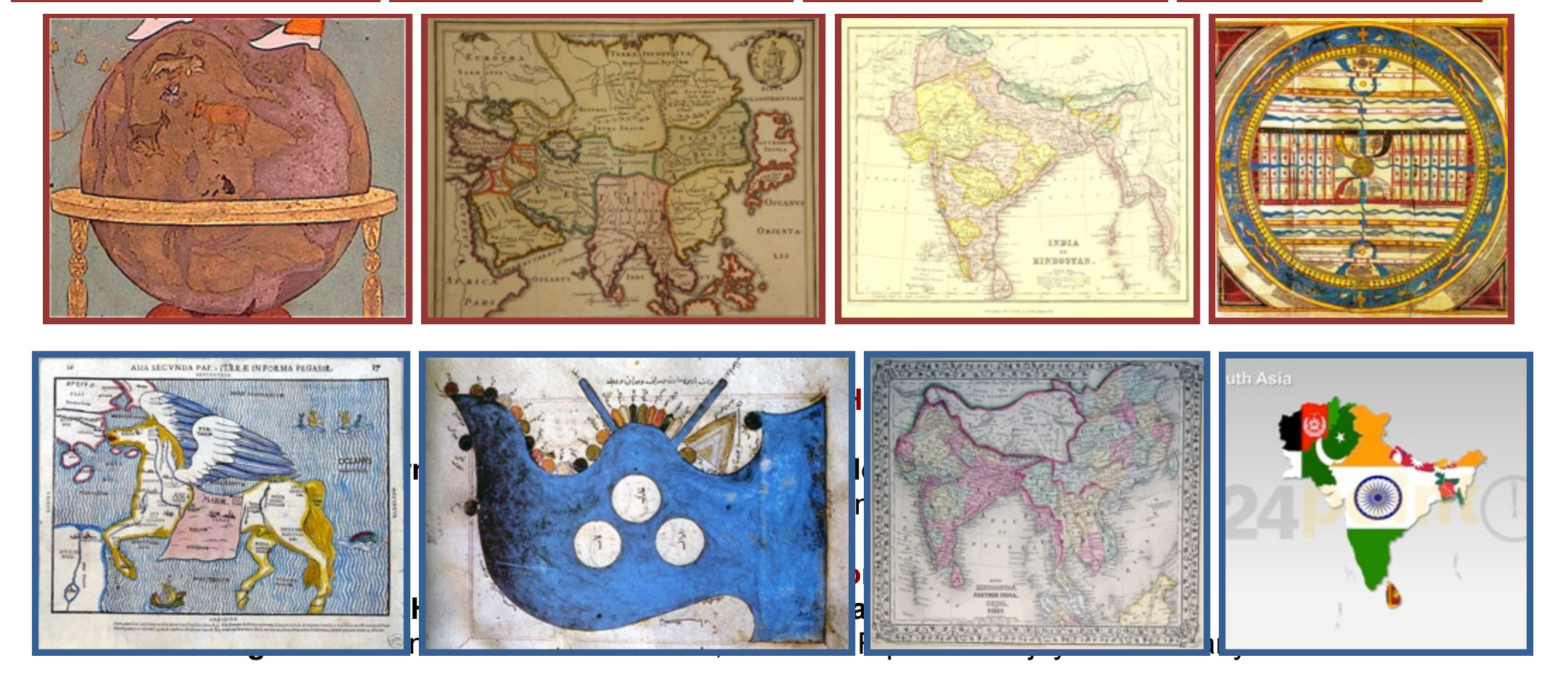Vie scientifique | Journées annuelles du CEIAS
The Idea of South Asia
17ème journée du CEIAS
South Asia, another name for the Indian Subcontinent, is a recent concept (only about six decades old), forged outside the region in the wake of the establishment of area studies by American universities. While it may be preferred to Indian subcontinent for its political neutrality, it is nonetheless a contested concept, both externally and internally. Whether in South Asia itself or in international institutions or research centres outside the region, there is no general consensus about the countries the concept encompasses: it primarily refers to India, Pakistan, Bangladesh, Sri Lanka, Nepal, Bhutan, the Maldives, as per the definition of the SAARC, which has however included Afghanistan lately (2005) among its members. Some would also include Burma (Myanmar) as it was a province of British India till 1937. Internally, the concept is contested on the political level but in a fairly paradoxical way: on the one hand, as a concept closely associated with India, it is in some contexts rejected by its neighbours; on the other hand, neighbouring countries (especially Nepal and Sri Lanka) have been instrumental in making the concept exist through the creation of journals, associations, and websites that mobilise the term.
Although “South Asia” is used more by international institutions and scholars than by local populations, this category is still highly meaningful as people across the region share fairly common social, cultural (clothing, food, the popularity of Bollywood…), linguistic and religious practices that traverse national boundaries.. The regular crossing of borders, within the region, is also another case in point of how individuals and groups make this category exist on an almost daily basis.
Beside these practices, some individuals and groups, in South Asia and in diaspora, actively contribute to building the idea of South Asia in the wake of tense relations between the countries of the region (mainly between India and Pakistan but also between India and other neighbouring countries). These “good-will” cross-border discourses and practices, which have been insufficiently studied, deserve more attention. Who are these actors? Beyond defusing political tensions, what are the other characteristics of their discourses? What type of cross-border practices do they engage into? What is their agenda? How do they rethink (the former) British India before the creation of contemporary borders? Is this a form of rethinking of the region along pre-Partition borders and beyond nationalism and nation-states? Is this an example of a contemporary use of the past? Is there any such thing as a South Asian identity? If so, how and when is it expressed? To further engage with this category in a comparative perspective, this conference will also include a discussion about the ways in which other areas have reflected upon the delimitation of their own space through the example of Iran.
Document(s) à télécharger
Les sites du CEIAS
- SAMAJ | The South Asia Multidisciplinary Academic Journal
- CEIAS - Facebook
- CEIAS - Twitter
- CEIAS - Newsletter
- Le Bulletin de la Bibliothèque
- Régionalisme & cosmopolitisme
- DELI | Dictionnaire Encyclopédique des Littératures de l’Inde
- DHARMA | The Domestication of “Hindu” Asceticism and the Religious Making of South and Southeast Asia
- TST | Texts Surrounding Texts
- STARS | Studies in Tamil Studio Archives and Society 1880-1980
- I-SHARE | The Indian Subcontinent’s Shared Sacred Sites
- Sri Lanka et diasporas
- Sindhi Studies Group
- Carnet du Master Études asiatiques
- Master “Asian Studies”
- Social Sciences Winter School in Pondicherry
- Caste, Land and Custom
- Musiques indiennes en terres créoles
 Actualités
Actualités
Devenir juifs : conversions et assertions identitaires en Inde et au Pakistan
 Débat - Mardi 9 mai 2023 - 14:00Présentation« L’an prochain à Jérusalem ! », scande un homme portant une kippa dans une synagogue de Karachi au Pakistan. Ses paroles sont répétées en chœur par les membres de sa communauté, un groupe comptant près de trois cents personnes qui s’autodésignent par (...)(...)
Débat - Mardi 9 mai 2023 - 14:00Présentation« L’an prochain à Jérusalem ! », scande un homme portant une kippa dans une synagogue de Karachi au Pakistan. Ses paroles sont répétées en chœur par les membres de sa communauté, un groupe comptant près de trois cents personnes qui s’autodésignent par (...)(...)
Le Centre d'études sud-asiatiques et himalayennes (Cesah), nouveau laboratoire de recherche (EHESS/CNRS) sur le Campus Condorcet
Échos de la recherche -Depuis le 1er janvier 2023, l'EHESS, en tant que co-tutelle, compte un nouveau centre de recherche né de la fusion du Centre d'études de l'Inde et de l'Asie du Sud (CEIAS - EHESS/CNRS) et du Centre d’études himalayennes (CEH - CNRS) : le Centre d'études sud-asiatiques et h (...)(...)
Centre d'Études de l'Inde et de l'Asie du Sud
UMR8564 - CNRS / EHESS
54 boulevard Raspail
75006 Paris, France
Tél. : +33 (0)1 49 54 83 94
Communication :
nadia.guerguadj[at]ehess.fr
Direction :
dir.ceias[at]ehess.fr
La bibliothèque du CEIAS
Maison de l'Asie
22 avenue du Président Wilson 75016 Paris
54 boulevard Raspail
purushartha[at]ehess.fr



